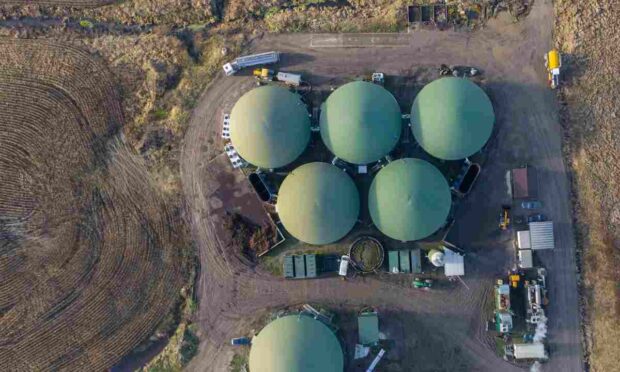Top Five developments of 2023 that ought to drive BIOGAS SECTOR

The Indian biogas industry is making an uptick-move and the gone-by year of 2023 should have a special mention in this regard. The government had previously provided the necessary push in the form of SATAT like policies and the corporate sector has come up with investments. The foreign investments have also increased and European technology suppliers are rushing to India to support the biogas industry that stands at around $1.5 billion today. According to a study, the Indian biogas industry is poised to grow at a CAGR of 6.3% and even at that speed it will be of a size of $ 2.25 billion by 2029.
Industry players and experts, however, believe that the biogas industry in India will rise to much higher levels in years to come as the government is bullish on making biogas blending at 15% by the end of this decade; the trajectory will resemble that of the ethanol industry. Let’s take a look at the FIVE MOST IMPORTANT DEVELOPMENTS as far as the biogas industry is concerned in 2023.
Mandatory CBG Blending Policy:
The Petroleum Ministry made a significant stride in advancing the adoption of CBG Blending Obligation (CBO) by announcing the phase-wise implementation of mandatory blending of Compressed Biogas (CBG) in the Compressed Natural Gas (CNG) and Piped Natural Gas (PNG) segments. The order now creates a demand for the biogas as OMCs are bound to purchase the biogas. The CBO aims to boost CBG production and consumption, addressing objectives such as stimulating demand, reducing LNG imports, Forex savings, promoting a circular economy, and contributing to achieving net-zero emissions.
The government believes that the new policy is expected to attract approximately Rs. 37,500 crores in investments, fostering the establishment of 750 CBG projects by 2028-29. Initially voluntary until FY 2024-2025, mandatory blending will commence from FY 2025-26, with gradual increases to 1%, 3%, 4%, and ultimately 5% of total CNG/PNG consumption from FY 2025-26 to 2028-29. The implementation will be overseen by a Central Repository Body (CRB) following approved operational guidelines.
Reliance’s Quest for 100-CBG Plants:
Reliance Industries Ltd Chairman Mukesh Ambani made headlines as he announced his group’s plan to establish 100 CBG plants aimed at converting agricultural waste into gas. Following the successful setup of two demonstration units for CBG in Jamnagar, Reliance achieved a significant milestone by commissioning the first commercial-scale CBG plant in Barabanki, Uttar Pradesh, within a record time of just 10 months. Reliance says that it’s poised to swiftly expand this initiative, intending to deploy 25 CBG plants across India.
Their ambitious goal is to establish a total of 100 CBG plants over the next 5 years, utilizing 5.5 million tonnes of agro-residue and organic waste. This initiative is expected to mitigate nearly 2 million tonnes of carbon emissions annually while generating 2.5 million tonnes of organic manure. The company is now knitting with the sugar industry for seamless supply of pressmud for its biogas plants.
India Completes 50 CBG Plants:
Well Begun is Half Done! The Centre announced that by November 2023, 50 Compressed Biogas (CBG) projects were commissioned in India and many more are under construction. Even though it’s meagre when looking at India’s quest to develop 5000 such projects by the decade’s end, a reasonable beginning is made. The 50 plants boast a combined daily production capacity of approximately 300 tonnes. Funding for these projects is derived from a mix of equity from project proponents and debt support from various financial institutions.
The Reserve Bank of India (RBI) categorizes CBG projects as part of agricultural infrastructure, resulting in their inclusion in “priority sector” lending. Government also said that state-level committees have been established to oversee the implementation and progress of the SATAT initiative in Andhra Pradesh, Chhattisgarh, Gujarat, Haryana, Maharashtra, Punjab, Tripura, Uttar Pradesh, and West Bengal. Hence, expect a larger number of projects coming to completion in 2024.
GOBARdhan Shows Promising Results:
The GOBARdhan scheme launched by Jal Shakti Ministry to transform “Waste to Wealth” using a “Whole of Government” approach has started stimulating investments and reaping good results by creating a nurturing ecosystem for Compressed Biogas (CBG)/Biogas. The government said that over 1163 biogas plants and 426 CBG plants have successfully registered on the portal as of September 2023. All these registered biogas plants are getting Market Development Assistance (MDA) of Rs. 1500/MT will be granted for the sale of manure produced in the biogas plant. The MDA scheme has been launched with a robust budget of Rs. 1451.82 Crore spanning three years, i.e., Financial Year 2023-24 to Financial Year 2025-26. Experts say that on the CBG/Biogas plant front, the MDA scheme is a massive booster shot for the sector. The cherry on top comes in the form of Budgetary announcement by Nirmala Sitharaman for 500 new ‘waste to wealth’ plants for promoting a circular economy with a total investment of Rs 10,000 crore under GOBARdhan in this year’s budget.
Global Biofuels Alliance (GBA):
The Global Biofuels Alliance (GBA) was launched by the efforts of India in September 2023, on the sidelines of the G20 Summit in New Delhi. The Alliance has the initial support of 19 countries and 12 international organizations. As a multi-stakeholder alliance of Governments, International Organizations and Industries, GBA is now bringing together the biggest consumers and producers of biofuels and interested countries from the Global South to drive development and deployment of biofuels. GBA intends to expedite the global uptake of biofuels through facilitating capacity-building, providing technical support for national programs, sharing of best practices and promoting technology advancements, with the participation of a wide spectrum of stakeholders.




